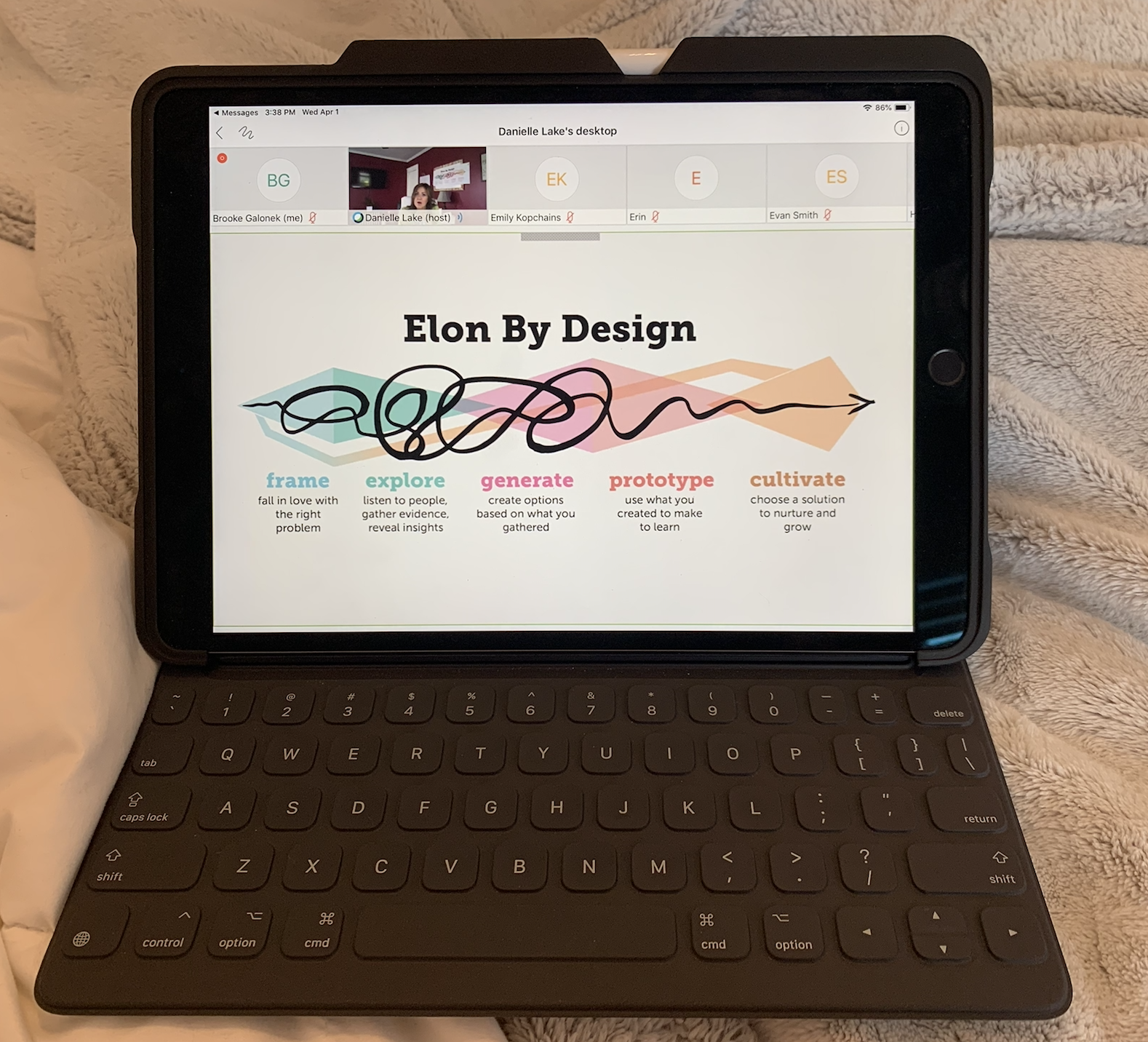The Center for Design Thinking will offer workshops in a variety of formats to accommodate social.
With the COVID-19 pandemic impacting classroom learning in the fall, the Center for Design Thinking is designing workshops and seminars for physically-distanced settings.
New workshop formats
The number of people allowed in the Center at one time will be kept under 34, according to Danielle Lake, director of the Center for Design Thinking, and workshops will be available as webinars or in prerecorded formats. Instead of relying on sticky notes, students can share their ideas and collaborate by using shared virtual spreadsheets, polling tools, and other virtual aids while brainstorming during workshops.
Lake said workshops are also being designed for use in outdoor spaces.
“With students and faculty facing social distancing challenges, there is a need to explore how to learn,” Lake said. “We’re designing workshops to help students bring more their own sense of purpose, personal passions, and play to their learning this fall.”
The Center for Design Thinking can also visit classes to conduct design thinking workshops. In a Tuesday/Thursday class, because of physical distancing measures on campus, one half of a class can attend a design thinking workshop one day while the other half is in class. Then on the next class day, the other half can attend a workshop while the other students are in class.
“We can help them use some tools and develop some skills because they are not likely to be in the classroom as much as they were. There may be more free time, but there is just as much work to get done,” Lake said.
Design thinking as a skill
Design thinking can help generate and prototype ideas by creating many possible solutions to a problem rather than attempting the first option that comes to mind. “In western culture we think of design–creativity–as someone in a corner dreaming up these amazing things, and that’s just not the reality of how social change and innovation work. They manifest in relationships by trying, learning and failing over time,” Lake said. The design thinking process encourages the testing of a variety of ideas to cultivate a solution to a problem or issue.
Lake said alumni who were familiar with design thinking excelled in their employment as employers were surprised by the tools and skills beyond technical training that they were able to bring to the workplace.
“If you’re going to have students work effectively on teams and bring themselves into the classroom and generate ideas they value and be intrinsically motivated by your class, then we have tools or workshops to help that,” Lake said.
To request a design thinking workshop, please fill out a short form on the Center’s website here.



